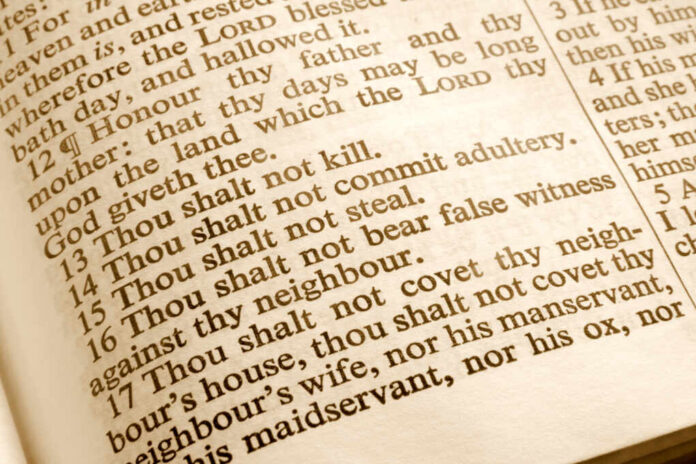
Teachers across Texas are resigning in protest as a new law forces every public school classroom to display the Ten Commandments.
Story Snapshot
- Texas now requires the Ten Commandments to be posted in every public school classroom statewide.
- Teachers are quitting or protesting, citing threats to religious freedom and the separation of church and state.
- The law mandates specific poster wording, placement, and size, with public funds or donations to ensure compliance.
- Legal battles loom as civil liberties groups prepare challenges, while supporters argue for restoring moral clarity in schools.
Texas Mandates Ten Commandments Displays in Public Classrooms
On September 1, 2025, a Texas law went into effect requiring every public school classroom to display a poster of the Ten Commandments. The state legislature, backed by the governor, pushed this measure as a way to restore what they call “Judeo-Christian values” and promote moral clarity among students. The law is highly specific: it dictates the exact wording, size, and placement of the posters, leaving little room for local discretion. School districts must either accept donated posters or purchase them using public funds, ensuring that the mandate cannot be sidestepped by budget constraints.
Almost immediately after the law’s implementation, reports surfaced of teachers resigning in protest or refusing to comply. Some educators have taken to creative forms of resistance, such as hanging the posters upside down or adding texts from other religions beside the mandated display. The last major legal test, Stone v. Graham (1980), struck down mandatory Ten Commandments displays in public schools as unconstitutional, setting a clear precedent.
Watch:
Teacher Resignations and Community Backlash
The fallout from the law has been immediate and disruptive. Some school districts are facing acute staff shortages as teachers resign rather than compromise their principles. Parents and students are divided, with some supporting the law as a necessary return to “common sense” values, while others organize resistance efforts, such as distributing First Amendment pins to students. School administrators are left navigating a patchwork of compliance, creative protest, and community outrage, all while bracing for the legal battles that are expected to follow.
Watch:
Broader National Implications and Legal Uncertainty
Texas is not alone in this push. Louisiana and Oklahoma have passed or proposed similar laws, and the Texas law is only the latest in a series of measures aimed at increasing religious presence in public schools—from “In God We Trust” signage to allowing chaplains as counselors and tying funding to Bible-based curriculum. These actions form part of a broader national conversation about the role of religion in public life and the limits of state authority over personal belief. The specificity of the Texas law—its mandated wording, size, and enforcement—may make it more vulnerable to legal challenge, but as of now, the courts have not yet ruled on its constitutionality.
Sources:
New Texas Law Requires Ten Commandments to Be Hung in Public School Classrooms – The State Times
Texas Freedom Network: SB 10 Blog
Thou Shalt Not Push the Ten Commandments or the Bible Upon Students in Public School Classrooms in the South – The SHHS Accolade

























